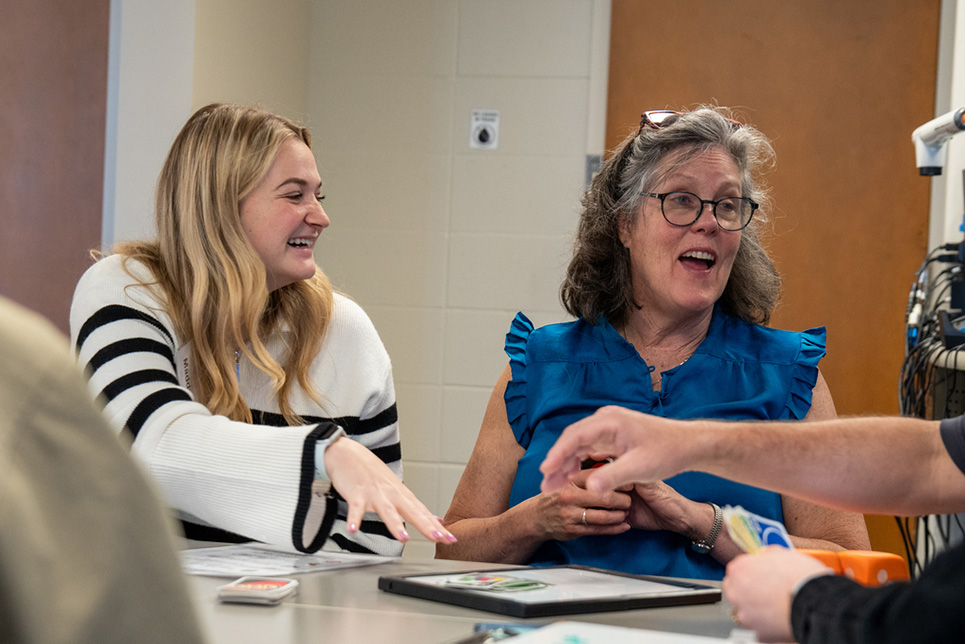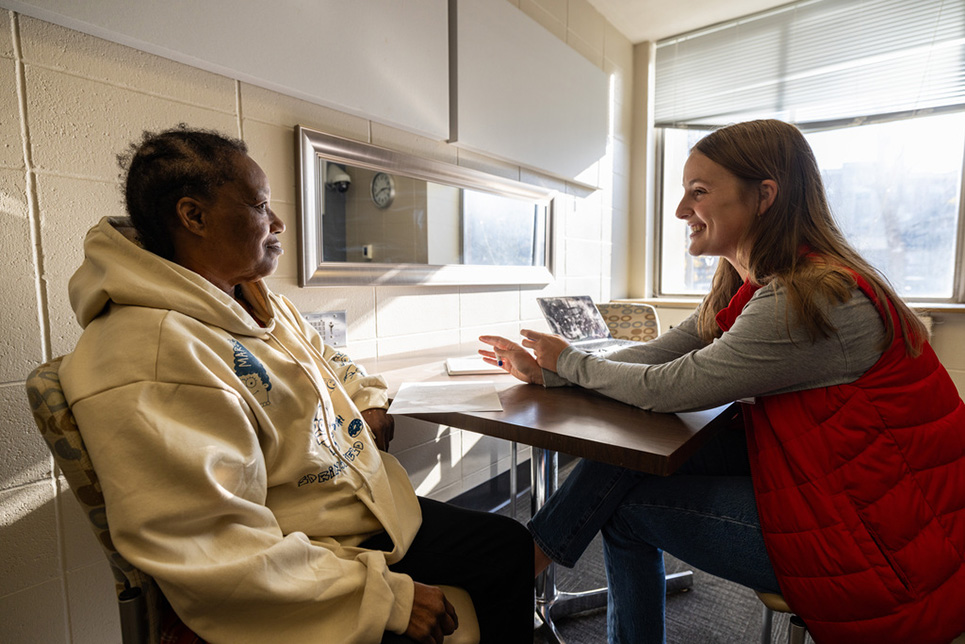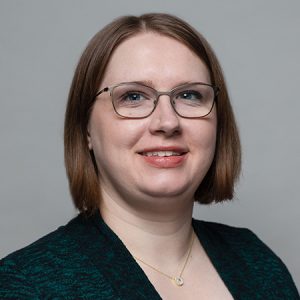Feb. 6, 2025

Story by Rebecca Spezzano
Every Friday morning, a group of unlikely friends come together to talk, share laughs and learn as they navigate challenging yet enjoyable experiences.
“It really is a highlight of my day and my week,” said Lauren Widman, a first-year graduate student with the Department of Speech, Language and Hearing Sciences (SLHS).
Widman is a part of the Language Enhancement for Adults Program – LEAP for short. Established in the 2017-18 academic year as part of the department’s commitment to ensuring graduate students gain diverse clinical experiences, the LEAP program was designed to help adults who have cognitive or communicative impairments bridge the gap between structured speech therapy and everyday interactions.
There are two groups that make up the program, each with four participants: The cognition group focuses on memory and attention, while the aphasia group is for individuals who have difficulty using or understanding language. Each SLHS student in the program is paired with a participant, whom they work closely with throughout their clinical period.
“We’ve built this rapport and friendship with all of our clients,” said first-year graduate student Kayla Shelby.
William Gerstacker has been participating in LEAP for about five years now. He has used the program to make his voice clearer and accelerate his speaking.
While he truly appreciates the knowledge and tools that LEAP has provided over the years, he said his favorite part is the people he has met along the way.
“I enjoy going to the LEAP program,” Gerstacker said. “I miss those guys, and I’m always glad to see them on Friday.”
In many cases, the LEAP program is the first time SLHS students have an opportunity to work with adults. After interacting so much with children, Shelby said it can be nerve-wracking to make the switch.
“You’re like, ‘OK I can play with a kid,’ but someone that is older than you and knows more than you — it’s super intimidating,” Shelby said.
Despite that initial anxiety, Shelby and her peers said they have loved working with their clients. Assistant Clinical Professor Lauren Laur leads the program and understands the importance of those bonds.
“The most special part is just to watch those connections form between people,” she said.

The connections are not just clinician-client based, though. The program combines individual and group sessions to give participants an opportunity to use the strategies practiced with their clinicians in real-life settings.
Participants spend 45 minutes individually with their graduate student clinician and then attend a 45-minute group session with their fellow participants and their clinicians. Those group sessions include activities and games designed to stimulate conversation and build connections.
“That social interaction with other groups of people that are going through the same thing as them and seeing the impact on group sessions with them — it’s been really cool,” Shelby said.
For some students, including first-year SLHS graduate student Kate Parrish, this clinical experience is their first time being exposed to group therapy for adults. Parrish said she’s developed an appreciation for how impactful group therapy can be.
“My takeaway would be whenever you can practice skills or strategies in real life, do it,” Parrish said. “If someone isn’t using it in their real lives, then it’s not helpful.”
